
Related
Topics
Guests
- Juan Coleprofessor of history at the University of Michigan. He writes regularly about Middle East issues on his blog, “Informed Comment,” which is found online at JuanCole.com. His most recent book is Engaging the Muslim World.
- Samer Shehataassistant professor of Arab politics at Georgetown University.
University of Michigan Professor Juan Cole and Georgetown Professor Samer Shehata examine the future of Egypt. Will the revolution succeed, or will the next government be another “Mubarak regime without Mubarak?” Cole spoke at Columbia University in New York City last night at an event titled “Egypt Arising.” Samer Shehata joins us in Washington, D.C. [includes rush transcript]
Transcript
AMY GOODMAN: Sharif Abdel Kouddous and Anjali Kamat join us in Cairo. We are going to get comment now on a very interesting panel that took place last night. This is a two-hour special we’re doing. Some stations won’t be able to run both hours, but you can go to our website at democracynow.org, where we’re live streaming. Thousands are accessing us there. We’re on Link TV and on Free Speech TV, PBS and NPR and Pacifica stations, as well. And people are going to Facebook and sending in questions and comments, and you can follow us on Twitter, and certainly Sharif and Anjali on Twitter. You can access theirs at democracynow.org.
But last night at Columbia University, there was a fascinating panel about what was happening in Egypt. Among those who spoke was Juan Cole from the University of Michigan. “Informed Comment” is his blog, well known around the world. And after the speech, someone asked him about, well, what would a post-Mubarak Egypt look like, or what happens the day after Mubarak leaves? This was Professor Juan Cole’s response.
JUAN COLE: Statisticians have told me that if I talk in percentages, I can’t be wrong. So, there is a percentage chance that the —
MODERATOR: What kind of percentage?
JUAN COLE: I would give it about 30 percent, that the Egyptian regime will pull an Iran, will pull an Iran, a Khamenei, meaning that Iran faced similar protests in the summer and fall of 2009, and the regime repressed them. And this can be done. Revolutions, when they begin, are not inevitable that they will succeed. And so, one possible outcome of this popular uprising could well be that Omar Suleiman runs Egypt, even more than he has in the past, in which case the Palestinians, yet again, are up the creek, and so is everybody else. And, you know, the only way that this could be done is certain structural adjustments would be made. So the regime has already raised office workers’, government office workers’ salaries by 15 percent as a kind bribe and to try to divide the labor movement. So, that’s one possibility.
Another possibility, which is, it seems to me, much more likely, is that the regime is forced by continual demonstrations and by continual organizing to have — to move towards roughly free and fair parliamentary and presidential elections in September. But there is a problem with that scenario from the point of view of the goals of the protesters, that — who is organized to run in such elections as the National Democratic Party, the ruling party, which is consisting of three lies? And so, you know, there is a little bit of a danger if you go straight to, in a short period of time, relatively speaking, to parliamentary elections, that a lot of the same faces are going to be there in parliament. And then, remember, parliamentary elections, as we have discovered over the centuries, are peculiarly open to the power of money. And there is a class of billionaires in Egypt. Some of them are now are hiding in Dubai, but they could come back. And they still have their capital. So, you know, who’s going to fund these parliamentary campaigns is very possibly the very corrupt crony class that was created by the Mubarak regime and which — against which the protests are being conducted.
So, both of those scenarios do involve a certain amount of the protesters getting screwed over.
And the third possibility, which seems to me maybe only 10 or 20 percent, is that you get a genuine revolution, that there’s a social revolution, that substantial amounts of wealth and power get redistributed to new actors, that the regime really is overthrown in the way that the people mean when they’re chanting that. That seems to me not impossible, but also the odds are stacked against it.
AMY GOODMAN: That was University of Michigan professor Juan Cole, runs the famous website blog, “Informed Comment.” He was speaking at Columbia University last night.
Professor Samer Shehata at Georgetown University, your response?
SAMER SHEHATA: Yes. Well, I mean, I agree with Professor Cole that revolutions and history, in these kinds of circumstances, are contingent events, and of course we don’t know what the outcome is. But I have to say I do disagree with a number of things. I don’t think that the Iran comparison really holds any water for a number of reasons. I mean, one, the Muslim Brotherhood is not a clerically based, religiously textually-oriented, anti-democratic movement. That’s not at all what the Muslim Brotherhood is. And I might disagree with Juan or with Paul about the nature of the Brotherhood, but the Brotherhood has repeatedly participated in parliamentary elections. They’ve partnered with liberal opposition groups. They’ve partnered with left groups, and so on. So there are certainly very serious conservative elements and ideas in the Brotherhood ideology, but I don’t think in any way we could get to a kind of clerically based, Velayat-e Faqih rule of the clerics type of situation with regard to Iran. There’s also not the same importance of America and anti-American sentiment in what’s going on in Egypt. It’s a purely domestic matter.
I mean, I think that there is definitely a possibility, unfortunately, that what we could get is a kind of Mubarak regime without Mubarak or a Mubarak-lite regime. That’s just the way sometimes transformations occur. So, we could have a kind of — certainly not a fully democracy, but not as repressive a regime as we’ve had for the last 20 years.
With regard to the ruling party, I think I also disagree with Juan a little bit. I mean, the National Democratic Party, as he intimated, is neither nationally oriented, it’s not democratic, and it’s not a party. I always say to my students that the National Democratic Party is nothing other than a mafia of individual and personal economic interests masquerading as a political organization. And what I mean by that is that unlike real parties, there’s no real idea behind the National Democratic Party. It is essentially the evolution of what was the Arab Socialist Union in the 1960s. And the joke in Egypt is that if Mr. Mubarak woke up tomorrow and said, “I no longer want to be a member of the NDP, and I want to become a member of a new party, the Republican Party,” you would have two million members the next day leave the NDP and go to the Republican Party. It’s a patronage system. And so, as we saw with the burning of the NDP offices, everyone realizes what the NDP is in Egypt. He is right that money is very important in parliamentary elections everywhere and that certain businessmen would be well placed to fund campaigns.
Just one last thing, though. And that is, you know, elections in Egypt, the only certainty about them is that they have never been free and fair in the last 30 years or so. And what that means is that people rationally don’t participate in elections. That’s the most interesting kind of observation. You know, the official figures are about 25 percent participation rates, and we know even those are inflated. The significance of that is that electoral outcomes, whether it be the Brotherhood’s excellent performance relative to the number of candidates they put forth in the 2005 elections, which were marginally free and fair, or less fraudulent than usual, that’s no indication of what the Egyptian public would vote if elections were free and fair. People would actually turn out and participate in a process that had some credibility and in which they thought their vote counted. So I think we’d have a completely different landscape. And there are certainly liberal parties, liberal ideas, youth, labor, which hasn’t participated and, of course, over the last five years, has increasingly been organized and increasingly taken action, and so on. So I’m, I think, a little bit more optimistic than Professor Cole, nevertheless understanding that these things are historically contingent and they’re kind of unknown where we’ll end up in a year, in two years, in five years.

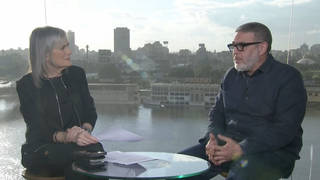
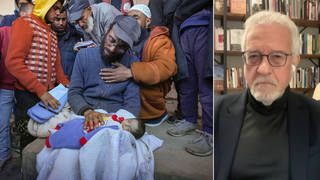
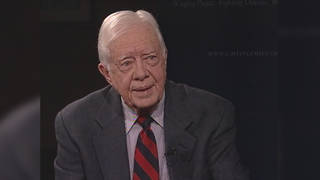
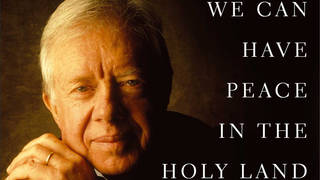





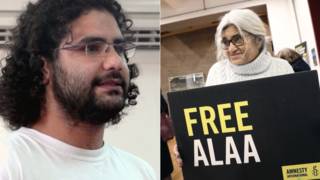
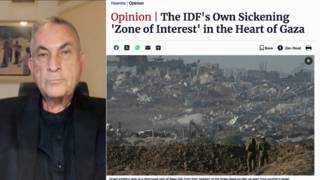
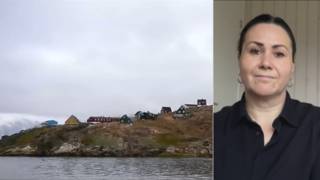
Media Options